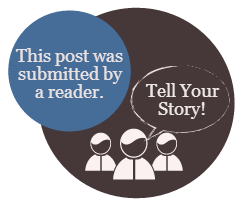 Can.you tell I have a cat just by looking at me? Can you tell I have a mental illness just by looking at me?
Can.you tell I have a cat just by looking at me? Can you tell I have a mental illness just by looking at me?
I began to change in my early teens, be it hormones and my shifting brain chemistry, or the stress of my parents seperating. Something stressor from the outside flipped on the switch to a new life filled with major mood swings out of my control.
Low self extreme kept me from meeting or caring about being social. I only went to school because I had to. Luckily one day two high school girls came to my 8th grade health class and talked to us about everything from Stress to Smoking to Sex even Suicide. They asked us to write thrm a question about these topics and others. I wrote “I want to die”It was the first time I admitted to myself or anyone else that I had these thouhts constantly. When class was over the girls kindly asked if I would like to talk to the counselor.
That day was just the beginning of my journey towards understanding mental illness, and ultimately accepting mental Wellness. Over the next few years I spent time in psychiatric hospitals, tried medication that would hopefully be the missing puzzle piece of chemistry my brain needed. Most of the medications tried their best but caused the worst. I never once stopped taking the medication I was prescribed, for I never wanted to feel so completely out of control again. I realized I was accepting my chemical imbalance and each day I began to understand myself and my issues in a much lighter, hopeful way.
The support I recieved on my journey towards wholness helped me acknowledge I was a person not a problem. My mother was my life support at times. She learned all she could about mood disorders and educated our family so as not to judge me, but be very proud. I also met some peers within the mental health community that I still keep in touch with regularly. It was a blessing to know I was not alone in the issues I faced. And that I would be accepted by my peers, for they had experienced similar challenges.
I knew I had a message and a story to tell. I wanted to share my experience From Hell to Hope with students. That is where my journey began. So , with a father whose son has schizophrenia, and I, with my rapid cycling moods we have spoken to over 4,000 high school students since 2006.
My hope is to stop stigma, treating people badly because they seem different. I want to promote education of mental illness so people suffering and their loved ones will believe recovery is real.
Submitted by Antonella Novi
. . . . . . . . . . . . . . . .
Note from Phil:
Obviously this story is not congruent with the central theme of this website: that mental illness is a spurious, destructive, disempowering, and stigmatizing way to conceptualize human problems.
Readers should be aware that although the author of this story does not declare the affiliation in the above account, a brief Internet search revealed that she has been a volunteer with NAMI for over ten years, and was trained and certified as a state trainer by NAMI in St. Louis in April 2009.
NAMI has been an avid promoter of the spurious chemical imbalance theory for decades. In it’s 2012 Annual Report (the most recent available), the Corporate and Foundation Sponsors include: AstraZeneca, Bristol-Meyers Squibb, Eli Lilly & Company, Forest Laboratories, Genentech, GlaxoSmithKline, Janssen, Lundbeck, Merck & Co., Novartis, Otsuka America Pharmaceuticals, Pfizer, Shire, Sunovion, Takeda Pharmaceuticals North America, and Teva.